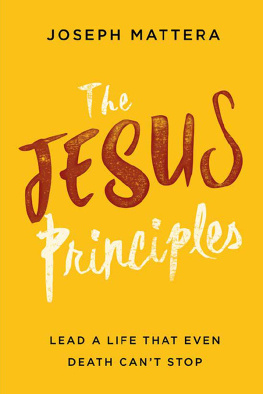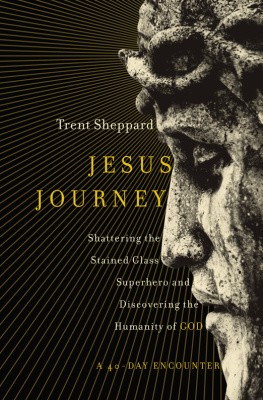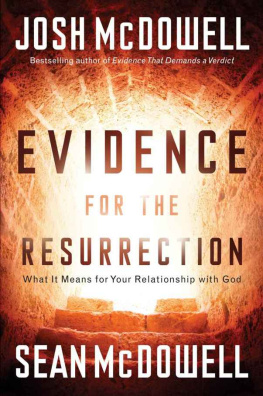IN ORDER TO mentor people the way Jesus did, we need to understand the fact that Jesus never enabled or empowered people comfortable in their sin or bad attitudes. That is to say, He was tough with His disciples when He needed to be tough and corrected them when they needed correction. Mentors must be willing to give constructive criticism to those they are pouring into, or they will forfeit the role God has given them to help shape those particular people. Mentors who are afraid of godly confrontation or refuse to bring correction to those they are mentoring will be guilty of helping perpetuate habit patterns harmful to those people God has entrusted to them. These are mentors who desire to please people more than help people. This is a tendency the apostle Paul spoke against (1 Thess. 2:4).
After more than forty years of teaching and mentoring others, I have come to the conclusion that there are two kinds of disciple makers or mentors in the body of Christ: enablers and those who disciple. In the following section I am going to contrast enablers and true disciple makers so that you will be able to discern which category you fit in. If you are in the enabler category, my prayer is that after reading this section, you will turn away from this style of leadership and transition toward true, biblical disciple making. Since much of discipleship takes place in the context of small groups in a local church, I have crafted these contrasts to fit the small-group dynamic. However, they can be applied in a one-on-one setting as well as other settings.
Traits of an Enabler
Enablers accommodate their message and approach to ministry based on the commitment level of their group rather than keeping biblical standards. Hence, their goal is to keep people happy and not make anyone uncomfortable. The challenge with this approach is the fact that it is the mentors, not the mentees, who should determine the standards and content of the teachings (content that always conforms to Scripture).
Can you imagine what would have happened had the Lord Jesus based the standard of His teachings on the value system of those He was teaching? This point is even more important today since we are in the midst of cultural and moral decline and often those in the church have adopted values and views that counter rather than conform to the Word of God. Of course every mentor, like Jesus, should use language and examples familiar to those they are teaching to make it easier for them to assimilate and understand. When Jesus was with those familiar with an agrarian culture, He spoke about sowing seeds, lost sheep, and being the Good Shepherd. When He was with the woman at the well, He spoke to her about living water and so forth. Consequently a good mentor should utilize the language of culture to make a point without compromising biblical standards and values. Even when Jesus was eating and drinking with sinners, He never compromised His message and essence by coming down to their level of behavior. He was a bridge builder between sinners and the Father so that He would draw people unto God. He was always the table setter, not vice versa.
Enablers rarely challenge those they mentor even when they have been saved a long time and are not adhering to the foundational principles of attending church, sharing their faith, tithing, giving offerings, living holy lives, and seeking first the kingdom of God. I have known small-group leaders and so-called mentors who never make a difference regarding the behavior and goals of mentees. Of course at the end of the day I believe every person has to choose the kind of life he or she is trying to lead. However, irrespective of who is mentoring them, I have seen some people who are effective in shaping and motivating the lives of people they are mentoring and others who only provide good fellowship without challenging the status quo. Good mentors, more often than not, will have a positive impact on the lives and trajectory of those they are mentoring.
Enablers rarely integrate the ministry and vision of their local congregation but instead empower unaccountable individualism. Enablers tend to point to themselves rather than to the vision of the local church. This is due to the fact that what is motivating them the most is obtaining the love and affection of people. Consequently both mentor and mentee and/or small group develop a fleshly emotional bond that becomes codependent. The result is that the small group or mentees become more committed to their mentor than to the church vision and to Jesus. They become islands unto themselves, even in the context of serving in a church ministry. Codependent mentor-mentee dynamics result in the mentor drawing disciples after themselves instead of integrating their ministry with the vision of the local church. Of course when there is more than one vision in a local church, there is division, and trouble is not far behind.
Another trait of enablers is they continually make excuses for those they are ministering to when they are operating outside of Gods willfor example, they are too busy to attend church on Sundays, tithing isnt important because God just wants their hearts first, and so on. Truth be told, there will always be a way to justify disobedience to God. When was it ever easy for Jesus and the original apostles, or for any one of us, for that matter? No, those we mentor sometimes fall into deception and disobedienceto Christ, and they always attempt to hide behind good excuses and difficult circumstances.
One of the primary jobs of a Christlike mentor is to uncover the root reasons behind these good excuses and challenge mentees to serve God even in the midst of trials and hardships. This is why the apostle Paul said to Timothy, Share in suffering as a good soldier of Christ Jesus (2 Tim. 2:3). A Christlike mentor is going to teach mentees that God allows hardships to test the faith of believers and to see if they really want to serve Him despite their many obstacles and challenges (Jas. 1:24).
Enablers will not only empathize with the poor excuses of their mentees but also sympathize with them and affirm many decisions deleterious to their faith and calling. Thus, because these enablers, perhaps unintentionally, are reinforcing the disobedient lifestyle of their mentees, either because of their own lack of conviction and/or passion in these dark areas or because the desire and need for them to be liked outweighs their motivation to disagree, they do not confront and help conform mentees to the image of Christ. Of course confrontation should always be done in love, grace, and mercy, and yet it has to be done, or mentees will feel empowered in their disobedience rather than convicted.
Finally enablers sympathize rather than empathize with mentees when they complain about spiritual authority and leadership. This perhaps is the most destructive trait of an enabler. This is because they have betrayed the trust given them by the spiritual leaders of a local church by entertaining accusations or complaints about spiritualauthority in their congregation. Everybody knows that it is very easy to criticize leadership, whether political or church leadership, when you are not the person responsible for steering the ship. We can all second-guess leaders, criticize their teachings, leadership style, or interaction with people they are in conflict with. Mentors who enable this kind of behavior function like Absalom, the son of David who stole the hearts of the people of Israel before they turned on their king (2 Sam. 15).
It is the role of mentors to understand how to correctly represent the spiritual authority of a local church and to point mentees to Matthew 18:1517 if and when they believe a spiritual leader has wronged them. Failure to promote biblical transparency (1 John 1:57) with mentees is to willingly participate in divisive actions that can harm both the mentee and the church.












